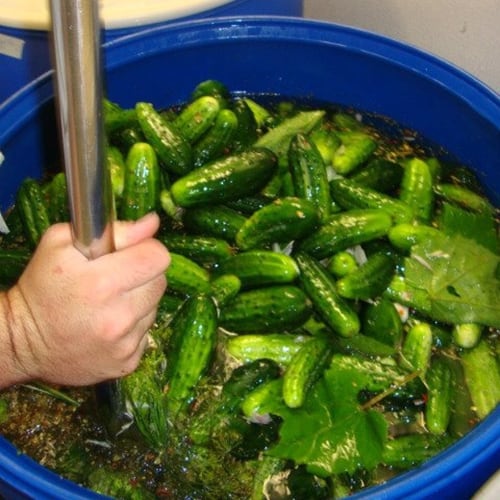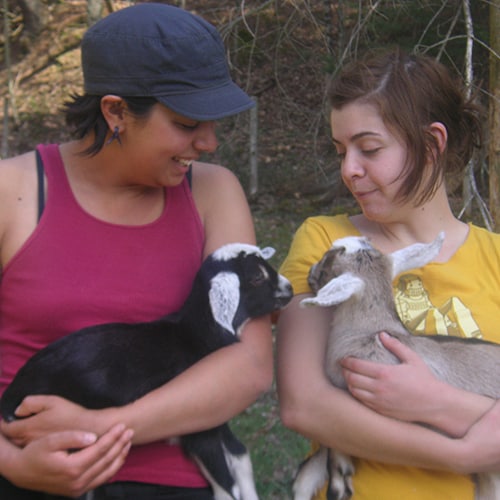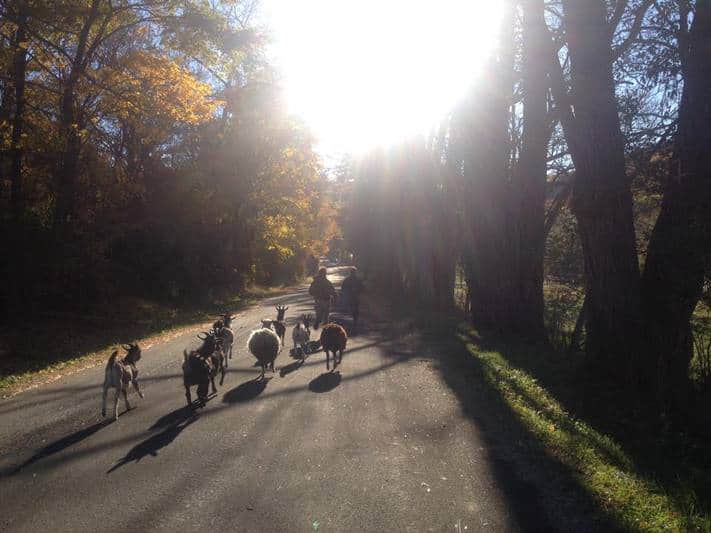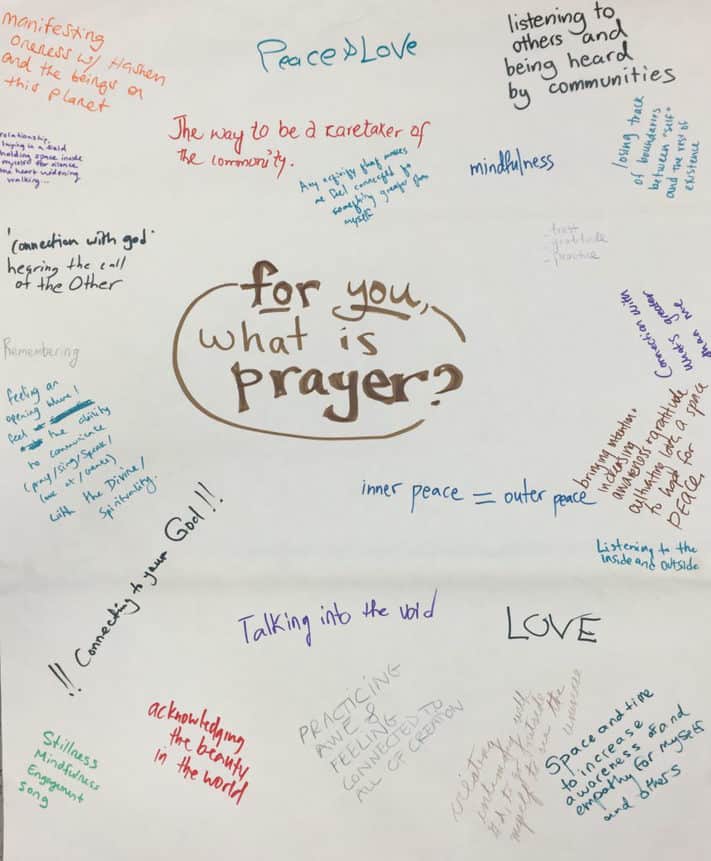A typical day is spent on our six-acre farm, in our commercial kitchen and on our goat pasture, helping to create a sustainable business that models ecological design, financial viability and social responsibility. Evenings are spent learning about Judaism and sustainability, building community and cultivating leadership skills. Our amazing staff and assortment of visiting faculty will help you listen to and follow your soul’s yearning for ecological and spiritual wholeness, recraft a Jewish identity that sings to you, and build relationships and skills that will sustain you for the rest of your life.
6:00 am – 7:00 am: Avodat Lev (Service of the Heart)
Avodat Lev brings us together for meditation, chanting, and creative sharing each morning. We begin the day in silent meditation, which is unstructured quiet time. Instruction is available for those unfamiliar with contemplative practice. We then find our collective voice, chanting short phrases from Shacharit (the traditional morning liturgy) to open our hearts to ourselves, each other, our community and the world. Creative sharing time is led by a different member of the community each day.
7:00 am – 9:00 am: Breakfast and Chores
After Lev, we bike to milk goats, water plants, take out the compost, or other chores. We eat breakfast at the ADAMAH House, where most of our farm-fresh meals are prepared and eaten.
9:00 am – 12:00 pm: Avodat Sadeh (Service of the Field)
Fellows typically work in one of following areas:

The Picklearium
Our commercial kitchen is the home of our lacto-fermented pickle and value-added product business. Fellows make pickles, sauerkraut, jam, and much more!

The Greenhouse
Fellows assist with seeding and plant propagation in our 28 x 40 foot heated greenhouse.

The ADAMAH Pasture
Goats, chickens, and bees! Fellows learn how to care for our animals in ways that reflect our highest Jewish ethics. Our animals provide honey, eggs, milk, and cheese for the community.

The Kaplan Family Farm
Our fields on Beebe Hill showcase home-scale permaculture gardening and commercial-scale berry production. Fellows assist in designing, installing, and maintaining various projects on this land. The farm produces over 50 kinds of vegetables, using no synthetic pesticides or fertilizers. Fellows participate in all aspects of vegetable production.
12:00 pm – 1:30 pm: Lunch at Beit Adamah
We eat most of our meals at the Adamah House (Beit Adamah,) and fellows take turns cooking for the group. Some meal prep is done as a chore by one or two fellows for the group. We are used to accommodating different dietary needs, and we love to enjoy meals together!
2:00 pm – 4:00 pm: Avodat Bayit (Service of the Home)
Isabella Freedman Jewish Retreat Center is our home, and fellows spend a few hours a week contributing to its care. Avodat Bayit includes working on efforts around campus, like landscaping and maintenance projects.
4:00 pm – 5:45 pm: Work or Limmud (Educational Seminar)
This is structured learning time. Classes are taught by ADAMAH faculty or guest lecturers and take place indoors or in the field. See below for a list of limmud classes taught during 2008.
5:45 pm – 7:00 pm: Dinner at Beit Adamah
We encourage fellows to eat bulk ordered and farm-grown food as much as possible. Adamah is a great place to improve your cooking skills, too!
7:00 pm – 8:30pm: Limmud or Community Meeting
Structured educational programs are offered up to three evenings per week (one evening is free). Community meetings are held once per week. There is also a weekly leadership curriculum, as well as bi-weekly agriculture walks in the sadeh/field.
*Please note that this is an example of a typical daily schedule. Your actual schedule may differ considerably, depending on the time of year you attend and the faculty. During most mornings and most afternoons, some fellows will work in Avodat Bayit while others work in Avodat Sadeh. Field trips and environmental building projects are also a component of the curriculum.
On average, fellows can expect to spend 26 hours per week in Avodat Sadeh, 10 hours per week in Avodat Bayit, 6 hours per week in Avodat Lev, and 8 hours per week in Limmud.





